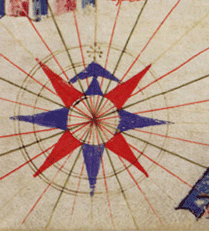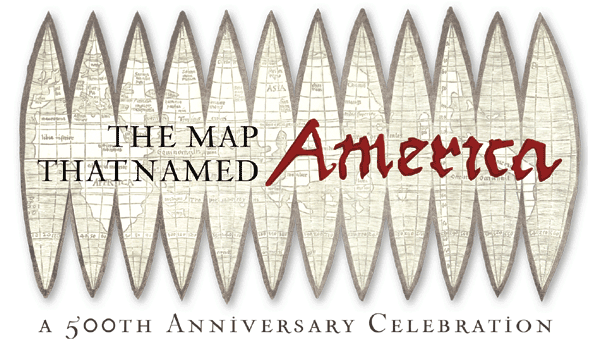Exploration and Discovery

Amerigo Vespucci: Merchant Adventurer
Amerigo Vespucci (1454-1512) grew up in the shadow of Renaissance humanism at the court of the powerful Medici family in Florence. He was born into a family of wealth and well-connected merchants and notaries, who enjoyed Medici patronage. His uncle, Georgio Antonio Vespucci, was a humanist scholar and teacher who played an important role in Amerigo's education. The adult Vespucci traveled to Seville as the Medici's agent, and it was here that he met Christopher Columbus. In addition to outfitting a fleet for the Spanish crown, Vespucci also outfitted the ships for Columbus' third voyage across the Atlantic in 1498.
In the late Middle Ages, particularly after the fall of Constantinople to the Turks in 1453, Europeans sought to circumvent the Muslim middlemen who controlled the goods flowing out of the Far East along the Silk Road and into the eastern Mediterranean basin.
In the early 15th century, the Portuguese crown began sponsoring expeditions into the Atlantic that gradually worked their way down the western coast of Africa. In 1488, Bartolomeu Dias (ca. 1450-1500) rounded the Cape of Good Hope at Africa's southern tip, proving that traveling eastward by sea was a viable route, later substantiated by Vasco da Gama (ca. 1460-1524), who commanded the first ships to sail directly from Europe to India.
Portuguese interests in the south Atlantic and eastward were secured by a papal bull in 1481, which granted all land south of the Canary Islands to Portugal. Spain, also interested in trading directly with the East, was forced to look westward, across the Atlantic.
The next year another pope granted Spain the land west and south of the Azores, followed in 1494 by the Treaty of Tordesillas, ratified by both Portugal and Spain, that divided the Atlantic along a north-south line at longitude 46° W., 370 leagues west of the Cape Verde Islands. Portugal was granted rights to all lands and discoveries to the east of the line, while Spain was granted the same rights to the west of the line.
This rivalry between what would become two of the world's earliest super powers affected the future exploration and settlement of the Americas.



